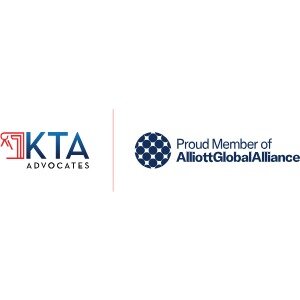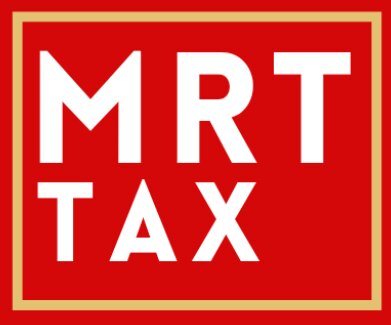Best Restructuring & Insolvency Lawyers in Uganda
Share your needs with us, get contacted by law firms.
Free. Takes 2 min.
Or refine your search by selecting a city:
List of the best lawyers in Uganda
About Restructuring & Insolvency Law in Uganda
Restructuring and insolvency law in Uganda is the legal framework that governs how financially distressed businesses or individuals rearrange or wind up their affairs. The primary goal is to offers solutions that either help revive and continue businesses or, where this is not possible, ensure fair and orderly liquidation of assets to pay off creditors. This area of law aims to balance the interests of debtors, creditors, employees, and other stakeholders, while supporting the broader objective of economic stability in Uganda.
Why You May Need a Lawyer
Legal assistance in restructuring and insolvency can be crucial for a variety of reasons. Common situations where a lawyer may be needed include:
- When a business is facing financial distress and needs to consider restructuring or formal insolvency proceedings.
- If you are a creditor concerned about recovering debts from an insolvent company or individual.
- If your company is threatened with winding-up or receivership actions.
- When you are seeking advice on voluntary arrangements with creditors.
- To understand your rights and obligations during liquidation, bankruptcy, or administration processes.
- If you need to assess potential liabilities as a company director or manager during insolvency.
- When contesting or challenging insolvency proceedings in court.
- If you require guidance on restructuring options that comply with Ugandan law.
A lawyer helps protect your interests, ensures compliance with legal requirements, and provides the expertise necessary to navigate complex procedures.
Local Laws Overview
Restructuring and insolvency in Uganda is primarily governed by several statutes and regulations, chief among them the Insolvency Act, 2011, which consolidated much of the law in this area. Other relevant laws include the Companies Act, the Bankruptcy Act, and certain provisions in the Companies (Insolvency) Regulations.
Key aspects of Ugandan restructuring and insolvency law include:
- Different procedures for individuals and companies. Companies may undergo administration, receivership, liquidation, or arrangements with creditors. Individuals may be subject to bankruptcy proceedings.
- The role of insolvency practitioners, who supervise or conduct the administration, liquidation, or bankruptcy process.
- Statutory moratoria that can provide breathing space to distressed companies from creditor actions while restructuring options are considered.
- Order of priority in payment of debts, with secured creditors, certain employee claims, and taxes often taking precedence.
- The possibility for voluntary arrangements, allowing companies or individuals to enter into formal repayment plans or settlements with creditors outside court.
- Director and officer responsibilities, with potential penalties for wrongful trading or misconduct during periods of insolvency.
- Cross-border insolvency provisions to address assets and operations in multiple countries.
These laws are designed to promote fairness, transparency, and efficiency in the handling of insolvency matters in Uganda.
Frequently Asked Questions
What is the difference between restructuring and insolvency?
Restructuring refers to efforts aimed at reorganizing a business’s debts and operations to avoid insolvency and continue trading. Insolvency, on the other hand, occurs when a person or company is unable to pay its debts as they fall due, often leading to formal legal processes such as liquidation or bankruptcy.
What are the main types of corporate insolvency proceedings in Uganda?
The main procedures include administration, receivership, liquidation (winding up), and company voluntary arrangements. Each procedure serves different purposes and is suited to different circumstances.
Can an individual be declared insolvent in Uganda?
Yes. Individuals who cannot meet their debt obligations may be declared bankrupt, which starts a legal process for distributing their assets among creditors and providing a fresh start once debts are settled.
What is the role of an insolvency practitioner?
An insolvency practitioner is a qualified professional appointed to manage insolvency processes such as administration, liquidation, and bankruptcy. They act in the interests of creditors and oversee the fair distribution of assets.
How does liquidation differ from administration?
Liquidation primarily aims to wind up and dissolve a company, distributing assets to creditors before closure. Administration focuses on rescuing the company as a going concern or achieving a better return for creditors than outright liquidation.
Are directors liable for company debts in insolvency?
Generally, a company’s debts are separate from its directors. However, directors may be personally liable if they are found guilty of misconduct, wrongful trading, or breaches of their fiduciary duties during insolvency.
Can creditors initiate insolvency proceedings?
Yes. Creditors who are owed a minimum specified amount can petition the court to initiate insolvency proceedings against a debtor company or individual.
What rights do secured creditors have during insolvency?
Secured creditors have priority in claiming against assets pledged as security. They can usually enforce their security, even during insolvency, subject to any statutory restrictions or moratoria.
Is there a way to avoid formal insolvency proceedings?
Yes. Alternatives such as informal workouts, restructuring negotiations, and formal voluntary arrangements can help debtors reach agreements with creditors without resorting to full legal proceedings.
How can I start insolvency or restructuring proceedings in Uganda?
The process typically starts by engaging a lawyer or insolvency practitioner, who will assess your situation, provide advice, and help prepare necessary documents to be filed with the courts or relevant authorities.
Additional Resources
If you are seeking more information or assistance, consider the following organizations in Uganda:
- Registrar of Companies - handles registration and statutory filings for insolvency matters.
- Uganda Law Society - provides directories of qualified advocates and insolvency practitioners.
- Commercial Court Division of the High Court - deals with corporate and individual insolvency cases.
- Ministry of Justice and Constitutional Affairs - source of official legislation and guidelines.
- Financial sector regulators such as Bank of Uganda, particularly for financial institutions.
These bodies can offer guidance, forms, and information on accredited professionals who can provide hands-on legal advice.
Next Steps
If you believe you need legal assistance regarding restructuring or insolvency in Uganda, consider these practical steps:
- Assess your financial position or the position of the company, and gather all relevant documents.
- Seek early legal advice from a lawyer experienced in restructuring and insolvency law in Uganda.
- Discuss potential options, risks, and the best course of action with your lawyer, including informal and formal solutions.
- If required, engage a licensed insolvency practitioner to manage the process.
- Ensure you understand your rights, legal obligations, and the potential consequences of each option.
Timely legal advice can make a significant difference in the outcome of restructuring or insolvency matters. Acting early can help protect your interests, minimize losses, and open up more effective solutions.
Lawzana helps you find the best lawyers and law firms in Uganda through a curated and pre-screened list of qualified legal professionals. Our platform offers rankings and detailed profiles of attorneys and law firms, allowing you to compare based on practice areas, including Restructuring & Insolvency, experience, and client feedback.
Each profile includes a description of the firm's areas of practice, client reviews, team members and partners, year of establishment, spoken languages, office locations, contact information, social media presence, and any published articles or resources. Most firms on our platform speak English and are experienced in both local and international legal matters.
Get a quote from top-rated law firms in Uganda — quickly, securely, and without unnecessary hassle.
Disclaimer:
The information provided on this page is for general informational purposes only and does not constitute legal advice. While we strive to ensure the accuracy and relevance of the content, legal information may change over time, and interpretations of the law can vary. You should always consult with a qualified legal professional for advice specific to your situation.
We disclaim all liability for actions taken or not taken based on the content of this page. If you believe any information is incorrect or outdated, please contact us, and we will review and update it where appropriate.
Browse restructuring & insolvency law firms by city in Uganda
Refine your search by selecting a city.
















